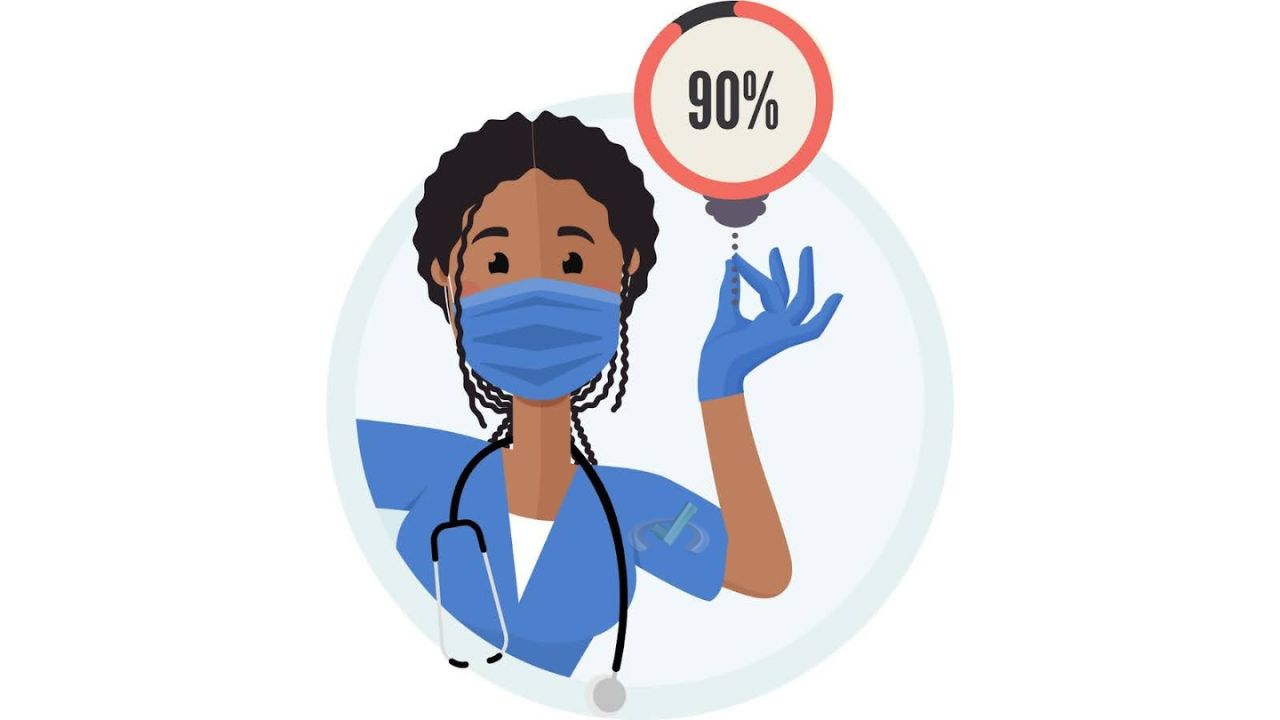
You're staring at your NCLEX test date, counting down the days, and one big question keeps nagging at you—what percent do you need to pass the NCLEX? You’ve spent years studying, completing clinical rotations, and practicing endless patient scenarios. But now, this one exam stands between you and your nursing license.
Unlike your nursing school tests, the NCLEX doesn’t use a simple percentage-based grading system. There’s no magic number like 75% or 80% that guarantees a pass. Instead, the NCLEX follows a computer-adaptive testing (CAT) model, which means the exam adjusts in real time based on how well you answer each question.
So, how does this work? How do you know if you're doing well enough to pass? And what strategies can help you cross the finish line with confidence? Let’s break it all down.
How NCLEX Scoring Works: Why There’s No Simple Percentage
You might be used to tests where you need to get, say, 70% of the answers right to pass. The NCLEX doesn’t work that way. Instead of a fixed percentage, it uses logits, a statistical measurement that determines whether your nursing competency is above or below the passing standard.
Here’s what that means:
This means that what percent do you need to pass the NCLEX? isn’t a question with a simple answer. Instead, the test assesses how well you apply nursing knowledge rather than how many questions you answer correctly.
What Percent Do You Need to Pass the NCLEX?
Since there’s no fixed passing percentage, what percent do you need to pass the NCLEX? boils down to staying above the passing standard throughout the exam.
Understanding the NCLEX Passing Standard
The NCLEX-RN passing standard is set at -0.18 logits, while the NCLEX-PN passing standard is slightly lower. This standard is updated every three years based on how new nurses are performing in real-world practice.
This adaptive system means that you could pass after as few as 85 questions or need to answer the full 150 questions before the system makes a final decision.

The Three Ways the NCLEX Can End
Every test-taker experiences a different NCLEX exam, but the system always follows strict rules when deciding when to stop your test.
1. Competency Is Proven Early
2. You Reach the Maximum Question Limit
If you answer all 150 questions, the system will take a final look at your ability level. If you are above the passing standard at the end, you pass. If you’re below, you do not pass.
3. Time Runs Out
If you run out of time before completing enough questions to determine competency, the system checks the last 60 questions you answered. If you performed above the passing standard for these, you pass. If not, you fail.
How to Score Above the NCLEX Passing Standard
Now that you know what percent do you need to pass the NCLEX?, let’s go over strategies to help you stay above the passing standard.
1. Master NCLEX-Style Thinking
The NCLEX doesn’t just test what you know—it tests how you think like a nurse. Questions will challenge you to apply clinical reasoning, prioritization, and safe patient care.
To boost your competency level:
2. Know How the CAT System Works
Since the NCLEX adapts to your responses, it’s important to understand how difficulty level impacts your score:
3. Use NCLEX-Specific Practice Tests
Regular nursing school exams don’t follow the same format as the NCLEX. That’s why using adaptive NCLEX practice tests is key. These help you:
Choose practice tests that:
The NCLEX isn’t just about studying hard—it’s about studying smart. If you want daily expert tips, high-yield questions, and test-taking strategies straight to your inbox, subscribe to our NCLEX Daily Dose Emails. It’s the best way to stay sharp and confident leading up to exam day!
Common NCLEX Mistakes That Lower Your Score
Many test-takers don’t realize that small mistakes can affect their overall performance. Here’s what to avoid:
1. Overthinking Simple Questions
Not every NCLEX question is a trick question. Some are designed to confirm your basic nursing knowledge. If you find yourself reading too much into the scenario, take a step back and apply simple nursing principles.
2. Failing to Manage Test Anxiety
Test anxiety can impact how well you perform. If you start second-guessing yourself, your performance can drop below the passing standard.
3. Mismanaging Time
The NCLEX gives you five hours, but poor pacing can leave you scrambling at the end. Keep an eye on the clock and aim to answer each question within 90 seconds.

How to Build a Study Plan That Keeps You Above the NCLEX Passing Standard
Success on the NCLEX isn’t about cramming the night before or relying on luck. It’s about consistently staying above the passing standard throughout the test. The best way to do that? A structured, NCLEX-focused study plan that builds your competency over time.
1. Start with an NCLEX Readiness Assessment
Before diving into study materials, take an NCLEX diagnostic test to find out where you stand. Many test-prep platforms offer assessments that estimate your ability level. This helps you:
If your diagnostic test results show you’re already answering high-difficulty questions correctly, your focus should be on practice exams and test endurance. If you’re struggling with foundational topics, targeted content review is your priority.
2. Break Your Study Sessions into Phases
A good NCLEX study plan happens in three phases:
This phased approach keeps your preparation structured and effective so that when test day comes, you’re already performing at or above the passing standard.
Make studying for the NCLEX easier with our NCLEX Cheatsheets—a free, high-yield resource covering essential topics, must-know strategies, and prioritization tips. Whether you're reviewing key concepts or tackling tricky question types, these cheatsheets will keep you on track.3. Make NCLEX Practice Tests the Core of Your Study Plan
Because what percent do you need to pass the NCLEX? is based on competency rather than raw scores, your practice test performance matters more than how many hours you study.
4. Create a Testing Environment That Mirrors Exam Day
The NCLEX is five hours long, and mental endurance plays a huge role in staying above the passing standard. Train your brain for test conditions by:
By treating your study sessions like real NCLEX exams, you’ll reduce anxiety and perform at your best on test day.
NCLEX Test Day Strategies: How to Stay Above the Passing Standard Until the End
You’ve studied, you’ve practiced, and now test day is here. The key to what percent do you need to pass the NCLEX? isn’t just preparation—it’s also how you handle the exam itself.
1. Start Strong by Controlling Test Anxiety
The first 10-20 questions set the tone for your test. If you start answering medium- and high-difficulty questions correctly, you’ll get harder questions that keep you above the passing standard.
To stay focused:
2. Use Strategic Guessing When Necessary
Some NCLEX questions will be extremely difficult—even for top students. Instead of panicking, use strategic elimination to make an educated guess.
The CAT system expects you to miss some hard questions, but what matters is your overall performance trend. Guess strategically, move on, and keep your score trending above the passing standard.
3. Keep Your Energy Up with Smart Breaks
The NCLEX is a marathon, not a sprint. Mental fatigue can lower your performance, so use breaks wisely.
Even if you feel fine, take at least one scheduled break. A clear mind makes better decisions, and decision-making is what the NCLEX is all about.
4. Stay Focused Until the Last Question
Even if you feel confident, never let your guard down before the test ends. The NCLEX can keep testing your competency until the last possible question.
By staying alert and focused all the way through, you increase your chances of staying above the passing standard and passing in fewer questions.

Final Thoughts on What Percent Do You Need to Pass the NCLEX?
So, what percent do you need to pass the NCLEX? There’s no set percentage because the exam doesn’t work that way. Instead, passing depends on:
If you focus on higher-order thinking, practice with adaptive tests, and manage test anxiety, you’ll give yourself the best shot at passing on the first try.
